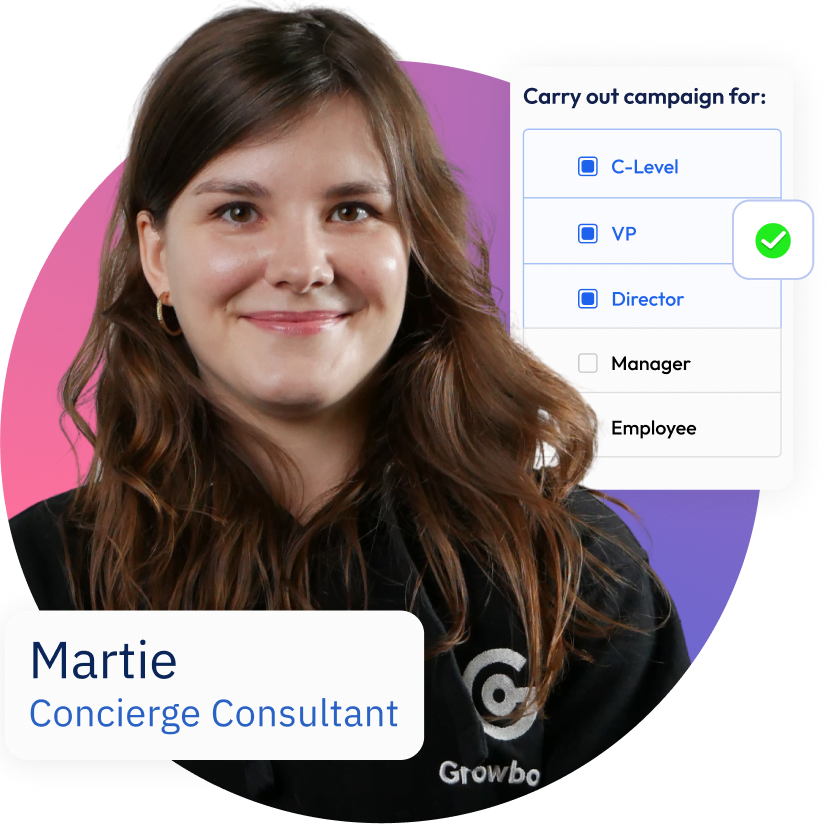Growing your business, or growing personally will always involve making mistakes. If you don’t make any mistakes along the way, it means you’re playing it safe and sooner or later you will stagnate.
While it’s perfectly fine to make mistakes, making the same mistakes over and over again is not. Some mistakes are more costly than others, and sales mistakes seem to be particularly expensive.
Not only do they jeopardize a firm’s opportunity to grow, but also have a negative impact on employee morale.
Acquiring new customers is a collective effort. So if other “parties” (think marketing, product development, customer success), do their jobs well, and sales don’t, it might eventually lead to frustration.
There are some common sales mistakes which can be easily avoided if you become aware of them.
9 most common sales mistakes (according to sales experts)
We’ve decided to ask a few well-known & top sales experts to name the most common sales mistakes that they came across. Here’s what they said:

Andrea Waltz, Keynote speaker, Co-Author of Go for No!
Sales Mistake #1: Making bad assumptions
All too often salespeople decide that they “know” what a prospect or client will do, will say, or will spend. And while educated guesses are okay, the reality is, we’ve all made sales presentations to people we thought were a sure thing that fell apart.
And conversely, a deal we thought had no chance of happening that turned into a yes! So, it is imperative that salespeople be willing to ask rather than assume anything during the sales process.
Many assumptions are just wrong and are usually designed to avoid rejection. But to get a ‘no’ from someone else than to tell it yourself and limit your chances for success.
Sales Mistake #2: Avoiding the word, NO
Because all salespeople want as many yeses as possible, they tend to shy from opportunities that could lead to a no. No is actually a very profitable word in the world of sales.
If you are finding out someone has no need for your product or service, that is a great no! If someone is qualified, a no can be the beginning of the dialog and not the end. No does not mean never, it means not yet.
So, instead of avoiding no salespeople should embrace it and see a no for all of the value it can offer instead of letting it get them down.

Bernadette McClelland, CEO of 3 Red Folders, Keynote Speaker on High-Performance Sales Culture
Sales Mistake #3: Not being prepared to make a mistake
One of the most common sales mistakes that salespeople make when selling is they aren’t prepared to make a mistake. Let me explain.
When you check in or clarify whether you have understood something or not, you need to be OK with getting your interpretation wrong, in order to get it right.
Too many salespeople walk away from a buyer without checking in, inevitably make wrong assumptions and it ultimately costs them the business.

Charles Green, Founder, and CEO of Trusted Advisor Associates
Sales Mistake #4: Accelerating way too rapidly to the solution
Too many salespeople – though completely well-intended – think their primary job is to solve problems, define solutions, add value. In fact, being ‘right’ is a necessary but not sufficient condition for getting the sale.
Particularly in B2B sales, nobody likes buying (or even listening) until they feel the salesperson has understood them.
There are several well-known phrases celebrating this simple truth: trite, but nonetheless true.
“People don’t care what you know until they know that you care.”
“People buy with their heart, then rationalize with their brain.”
Neil Rackham, The Godfather of sales, once told me personally when I asked him the single biggest sales downfall, “being in a rush to get to the answer.” Basically the same thing.
Customers are complicit in this flaw: they seek expertise and ask for the answers. But this is not because they simply want the answer – they are just afraid to look stupid, and don’t know better which questions to ask.
What they really want is indeed the seller’s expertise, but not until the seller has demonstrated some genuine care and interest in the buyer’s particular situation. Of course, the seller has seen this problem before, and the buyer wants that expertise – but they’ve never seen this buyer before, and buyers demand to be heard first.
The solution is simple. Just take some time to genuinely listen to the buyer. It’s frankly a matter of simple respect. Once respect is given, it is offered.
A humble analogy: you go out on a blind date. The other person says to you, “so, tell me about yourself.” What do you do?
The right answer is, of course, you tell them something about yourself; it would be rude not to do so. But the key is – how long do you take doing so?
If it’s more than a minute, you will never get the next date.
What the rules of human engagement dictate is that, after about a minute, you say, “But hey enough about me, let’s talk about you. Tell me about yourself?”
Robert Cialdini wrote about this decades ago in pointing to reciprocity as the first rule of influence. Basically, if you pay attention to me, I’ll pay attention to you.
So again, the biggest single flaw/mistake/downfall of salespeople is accelerating way too rapidly to the solution.

Cian McLaughlin, CEO at Trinity Perspectives
Sales Mistake #5: Being unable to answer the “So what” question
The one mistake that many (though not all) salespeople make, is that they fail to answer the ‘So What’ question which is in the minds of so many customers.
What I mean by that is that they give information in isolation to a prospect, without giving them the context as to why they should care:
Let’s look at a couple of quick examples:
We’ve got lots and lots of customers, look at all their logos on the slide behind me
So what?
“I’d like to highlight 3 specific customers from this slide to talk about, due to the similarity in the business pains they were experiencing and the fact that these might represent good customers for you to speak to when we move into the reference phase of your review process”
We’ve won lots of awards for our projects over the years
So what?
“We’re incredibly proud of the industry awards that we have received over the years because we have won them in conjunction with our customers and they recognize the commitment of our teams in delivering an exceptional project outcome.
I sincerely hope the project we’re about to embark on might be nominated for an industry award also”
We have a very low employee attrition rate in our business
So what?
“Our employee attrition rate is well below industry standards. What that means for our customers is far greater continuity in terms of the resources working with you to deliver on your project outcomes.
It also means that we have built deep domain and industry expertise in our business, which we leverage to deliver an even better outcome for our customers”
Remember, as a prospective customer of yours:
It’s not my job to care, it’s your job to make me care
It’s not my job to search for the relevance, it’s your job to highlight the relevance
It’s not my job to make the link, you need to ensure you create the link for me.

David Hoffeld, Science-Based Sales Trainer, Bestselling Author
Sales Mistake #6: Unable to show a strong business case for change
One of the most common sales mistakes salespeople make is not being prepared to demonstrate a strong business case for change. Our research shows that this tendency towards remaining in one’s current situation – what behavioral scientists call the status quo bias – is a salesperson’s #1 competitor.
Think about it. You’ve lost more sales to nothing than to someone. As a result, during the first interaction with potential clients, salespeople need to be prepared to provide compelling reasons why potential clients should consider making a change.

Larry Weidel, Bestselling Author, Winning Coach, and Mentor
Sales Mistake #7: Focusing too much on a checklist
One of the most common sales mistakes that salespeople make is worrying about going through a checklist of boring details rather than getting their potential client excited.
Sales is an emotional thing. You have to show them why you care and why you’re excited in order for them to feel the same excitement. Don’t get caught up in the minor details. You don’t get people to care by just reading off a boring list of features and details. That’s not going to get them excited.
For example, if someone wants to buy a microwave, they’re probably just looking for a microwave that can simply reheat food. And they either like the way the microwave looks or they don’t.
Most people can care less if it can also defrost, sensor reheat, etc. But a lot of salespeople place their faith in all the additional details rather than trying to get them excited about having a microwave and being able to reheat their food.

Mike Schultz, President at Rain Group
Sales Mistake #8: Not being able to control their time
One of the biggest mistakes many sellers make today is that they don’t know how to control their time. Habit No. 4 in The 9 Habits of Extreme Productivity eBook is Obsess Over TIME.
To be productive and achieve the best results, sales reps need to determine exactly how much of the time they’re spending is Treasured, Investment, Mandatory and Empty.
If they closely monitor and understand how they’re spending their time, they can make changes to minimize Mandatory and increase Investment. Sellers need to make time management a priority if they want to achieve superior results.

Nancy Bleeke, President and Chief Sales Officer at Sales Pro Insider
Sales Mistake #9: Pitching too early
The biggest mistake I see universally made is pitching. Pitching too early. Pitching without the right focus. And Pitching period. Why? Pitching is a one-way “throw” of information versus a conversation.
When reps don’t know a specific problem, opportunity, want or need of the specific person they are talking with, they are likely “pitching up the wrong tree.”
Do these sales mistakes named by our panel of top sales experts sound familiar? Is there anything we have forgotten about? Let us know in the comments.





















